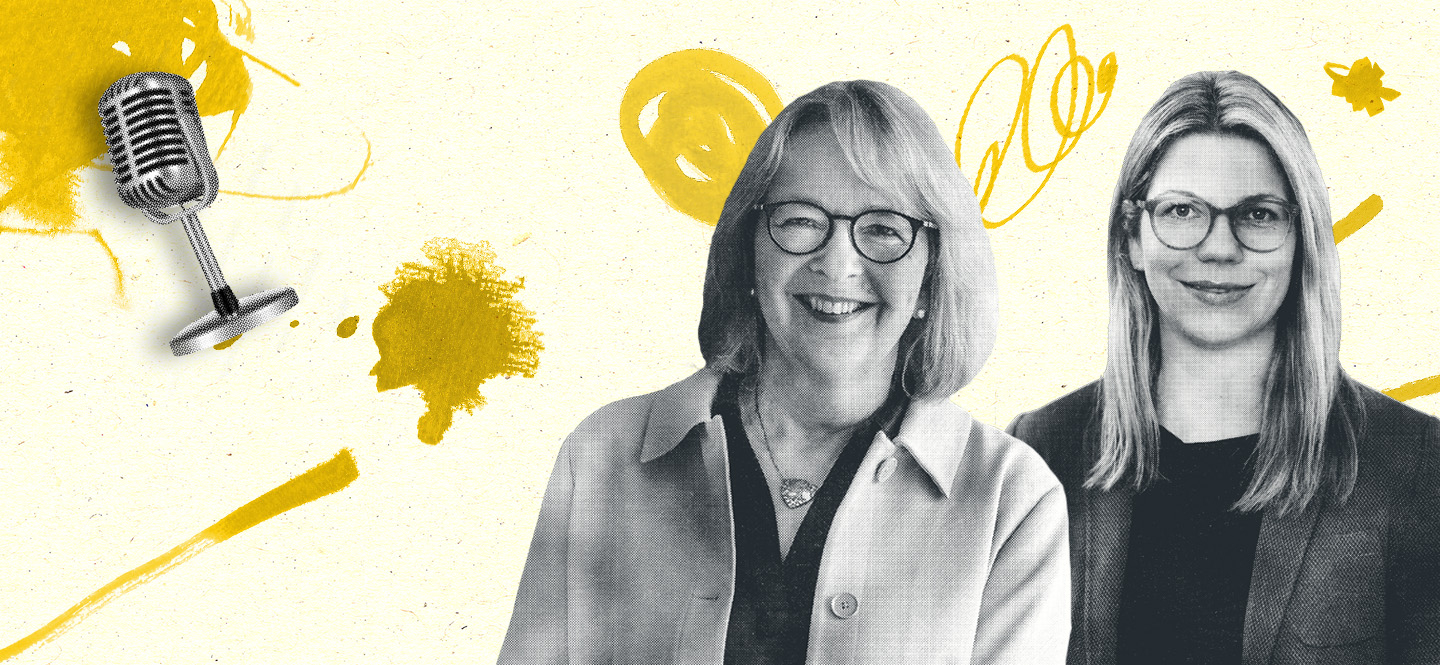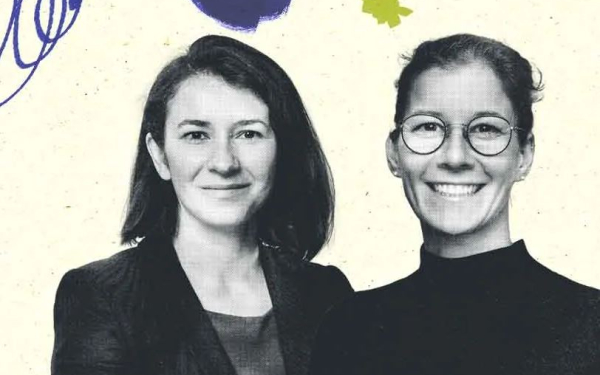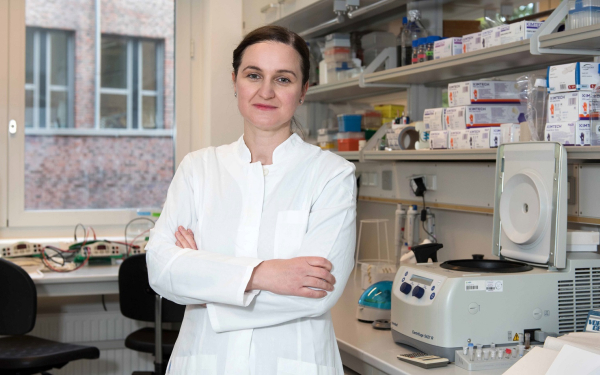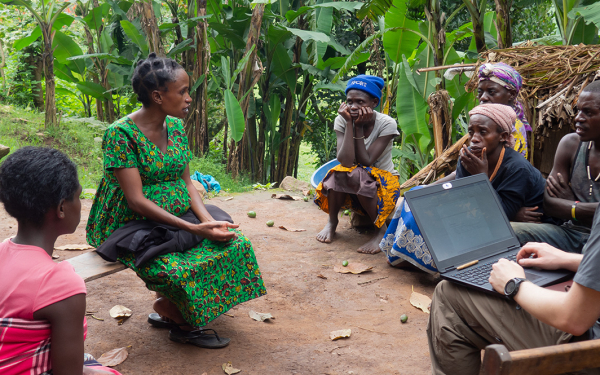'Basic Research is Part of the DNA of Our Funding Activities.'

VolkswagenStiftung
Henrike Hartmann, member of the Executive Board and Head of Funding (left), and Hanna Denecke, Head of Team Exploration
Why and how is the Volkswagen Foundation committed to basic research? A conversation with Henrike Hartmann, Head of Funding, and Hanna Denecke, Head of the Exploration Team.
Why is basic research important?
Hanna Denecke: Basic research forms the core of science; it sows the seeds for everything that comes after. Here, researchers are free to ask questions without having to immediately think about applications. This is also how the OECD defines it: in basic research, you are allowed to want to understand the world without changing it.
Henrike Hartmann: Yes, and that applies to the natural sciences and life sciences as it does to the social sciences and humanities. In my opinion, without basic research, no real breakthroughs can be achieved. Take the innovative CRISPR/Cas technology, which has a significant impact on research and application. It was originally developed as part of basic research on bacteria. If you want to prevent the ‘ideas pipeline’ of science, from which innovations can later emerge, from drying up, you need basic research.
Research results cannot be predicted.
Since when has the foundation been promoting basic research?
Henrike Hartmann: The Volkswagen Foundation has been promoting basic research since its inception; it is part of the DNA of our funding activities. We have been guaranteeing this freedom for over 60 years – and will continue to do so reliably in the future. Scientists need such spaces where they do not have to focus on practical applications. After all, research results cannot be predicted.
We see it as our responsibility to continually create space for new ideas.
Hanna Denecke: Our focus on basic research is particularly evident in our 'Exploration' profile area, for example in the funding initiative 'Pioneering Research – Exploring the Unknown Unknown' or in the NEXT programme. With NEXT, we address topics and research approaches with high knowledge potential, currently such as neuromorphic computing. Our aim is to provide impetus for rethinking established paradigms and developing previously unexplored or newly emerging fields of research.
A new addition is our call 'Night Science'. Here, interdisciplinary tandems consisting of two scientists from the natural sciences, life sciences or technical sciences can apply for funding to expand their creative abilities in a research context and develop unconventional ideas, hypotheses or theories. We see the creative process as an indispensable part of basic research. We are convinced that it leads to long-term advances in knowledge and breakthroughs.
What distinguishes the Volkswagen Foundation from other funding organisations in the field of basic research?
Henrike Hartmann: Anyone who wants to promote knowledge- and curiosity-driven research needs to be in it for the long haul. In some cases, the effects only become apparent after decades. The Nobel Prizes show this year after year, since the groundwork was often laid long ago and only led to a breakthrough many years later. As the largest private science-promoting foundation and thanks to our independence, we do not rely on quick successes.
Hanna Denecke: We are very close to our researchers, we listen to them and thus learn what is needed. We focus closely on the requirements of the scientific communities – without any constraints in terms of the topics covered. For example, we have a number of funding programmes that are completely open in theme, which is rare in the funding landscape. In our 'pioneering projects', for example, you can submit an application with virtually any kind of idea.
Only if you are allowed to fail, you will dare to try something new.
Henrike Hartmann: And we are open about the fact that not everything will succeed. In many parts of the scientific system, preparatory work and publications are a prerequisite for funding. We, on the other hand, explicitly state in certain funding offers that no preparatory work is necessary. If applicable, we expect a convincing argumentation on how to deal with unexpected twists and turns in a project. This is an invitation to ask truly new questions and broaden one's perspective. This is the only way to create something innovative, disruptive, new.
So failure is part of the process?
Hanna Denecke: Only if you are allowed to fail, you will dare to try something new. Anyone who ventures into truly uncharted research territory may fail – a hypothesis does not work out or a thesis contradicts the general view of the community. That takes courage. And that is where we want to provide support, because it takes this courage to move forward.
Henrike Hartmann: Failure, or more precisely, the falsification of a hypothesis, is an essential part of the process. Especially in basic research. Only the realisation that something does not work as described in the hypothesis opens up new perspectives. That is how progress is made.
Basic research is currently under increasing pressure to justify its legitimacy...
Hartmann: Yes, because overall, funds are becoming scarcer, and we need international cooperation more than ever. The fundamental, critical, curious questions that can later give rise to innovation are not tied to nations. Geopolitical developments should by no means lead to isolation – that would weaken basic research internationally and ultimately block innovation. As a funding foundation, we see it as our responsibility to continually create space for new ideas so that basic research gets its rightful place and appropriate funding.
Denecke: In addition to financial constraints, we are of course also seeing the political changes. In other countries, we can observe that science can come under political pressure. This makes it all the more important for basic research to be given a protected, inviolable space.
We have discussed basic research - and how do you view applied research?
Hanna Denecke: Our range is broad, both in terms of the spectrum of subject areas as well as the objectives we pursue in our funding. The foundation enables scientists to break new ground and explore uncharted territory. We explicitly want to initiate research that is driven by curiosity and insight – that is the task of our 'Exploration' team. The 'Social Transformations' team, on the other hand, focuses on transdisciplinary, applied research that responds to current processes of social change. And the 'Understanding Research' team focuses on the scientific system itself. But here, too, we fund both applied and basic research, for example with 'Momentum', a funding programme for newly appointed professors.
The foundation enables scientists to break new ground and explore uncharted territory.
Henrike Hartmann: There are areas of science where basic research and applied research are inextricably linked. When we launched the call for proposals for 'Antiviral Drug Development' in 2020, many projects were clearly conducting basic research on the coronavirus. It was the middle of the pandemic – basic knowledge about the new virus had to be developed first. Nevertheless, we demanded an application-oriented approach from the outset: cooperation with a pharmaceutical company had to be considered at the application stage in order to enable the fastest and most efficient transfer possible in the event of success. As an independent foundation, we can react quickly enough and develop tailor-made funding offers adapted to the current situation – we have just proven this again with the 'Transatlantic Bridge Professorships'.




